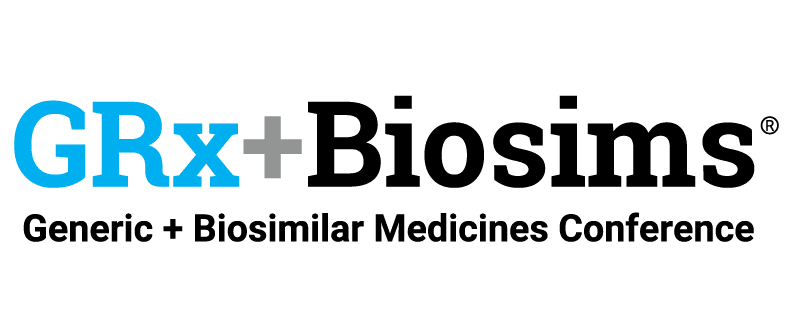Association for Accessible Medicines Unveils Policy Agenda for Biden Administration and 117th Congress
New Campaign Highlights Lifesaving Role Generic Drugs Have Played in Treatment of COVID-19
Report Series Examines Threats to Patient Access and Affordability
Washington, D.C. – February 22, 2021 – Today the Association for Accessible Medicines (AAM) and its Biosimilars Council shared their policy priorities for the Biden administration and 117th Congress, highlighting solutions to maintain the sustainability of generic and biosimilar competition.
In parallel, AAM launched a new advocacy campaign, “Secure Our Meds,” which includes a series of reports emphasizing the importance and resilience of the generic prescription medicine supply chain during the COVID-19 pandemic. It examines those market factors that threaten the only part of the U.S. health care sector that saved the health care system $2.2 trillion over the past decade.
The first report in the series, “Securing Sustainable Markets,” examines the challenges to market sustainability for generic and biosimilar medicines.
“The report outlines key steps that policymakers should take to ensure America’s patients continue to have access to lower-cost generic and biosimilar medicines,” said Biosimilars Council Executive Director Christine Simmon. “Together, these proposals could save patients and taxpayers an additional $20 billion over the next decade.”
The policy recommendations include:
- Fostering economic conditions to support domestic manufacturing of essential medicines;
- Modernizing Medicare to ensure generic drugs are available to patients;
- Aligning Medicare payment policies to encourage use of lower-cost biosimilars; and
- Repealing or amending the Medicaid Generics Penalty to reduce its harmful impact on low-cost generics.
The report can be found here on secureourmeds.org
Future papers will examine threats to the balance between innovation and competition that drives generic and biosimilar development, including maintaining incentives to challenge brand-name drug patents and eliminating abuses of the patent system, as well as regulatory challenges relating to generics and biosimilars approval.
Generic drugs comprise 90% of all prescriptions written in the United States but represent less than 20% of the overall health care spend. Over the past year as the coronavirus pandemic spread throughout the United States, generic drugs remained the most reliable and available treatment options for those patients suffering from COVID-19. From corticosteroids to control lung inflammation, to sedatives required for patient ventilation and more, generics saved countless lives. As the pandemic disrupted the global supply chain for medicine, the generic sector remained resilient, avoiding drug shortages despite export bans and skyrocketing shipping costs.
“Lifesaving generic drugs continue to serve as a strong and sturdy bridge to the vaccine and ultimately immunity for patients around the world,” said Dan Leonard, AAM president and CEO. “Throughout the past year, as unprecedented challenges derailed the global supply chain for so many products, the generic drug industry remained steadfast in its commitment to patients and flexed to ensure that medicines reached those who needed it most.” Leonard continued, “As our policymakers seek to strengthen our health care system in anticipation of future threats, it’s critical that we advance policy solutions that support the long-term health of the generic and biosimilar industries.”
Health care data firm IQVIA reports that over the past five years, price increases on brand-name drugs have generated an estimated additional $21 billion in brand manufacturer net revenue while generic drug price changes have resulted in a reduction of $7 billion over the same time period for generic drug makers.
While these facts seem to tell a positive story for patients and the U.S. health care system, they are the result of deflationary trends driven by market failure and misguided policy that threatens to drive many generic manufacturers out of the market. AAM’s policy solutions, presented in part in this first white paper, are designed to ensure that America’s patients have access to effective and affordable generic and biosimilar medicines in the future.
Learn more at secureourmeds.org.
MEDIA CONTACT:
Rachel Schwartz
202.249.7147
About AAM
AAM is driven by the belief that access to safe, quality, effective medicine has a tremendous impact on a person’s life and the world around them. Generic and biosimilar medicines improve people’s lives, improving society and the economy in turn. AAM represents the manufacturers and distributors of finished generic pharmaceuticals and biosimilars, manufacturers and distributors of bulk pharmaceutical chemicals, and suppliers of other goods and services to the generic industry. Generic pharmaceuticals are 90 percent of prescriptions dispensed in the U.S. but only 20 percent of total drug spending.
About the Biosimilars Council
The Biosimilars Council, a division of the Association for Accessible Medicines (AAM), works to ensure a positive environment for patient access to biosimilar medicines. The Biosimilars Council is a leading source for information about the safety and efficacy of more affordable alternatives to costly brand biologic medicines. Areas of focus include public and health expert education, strategic partnerships, government affairs, legal affairs and regulatory policy. More information is available at www.biosimilarscouncil.org.
